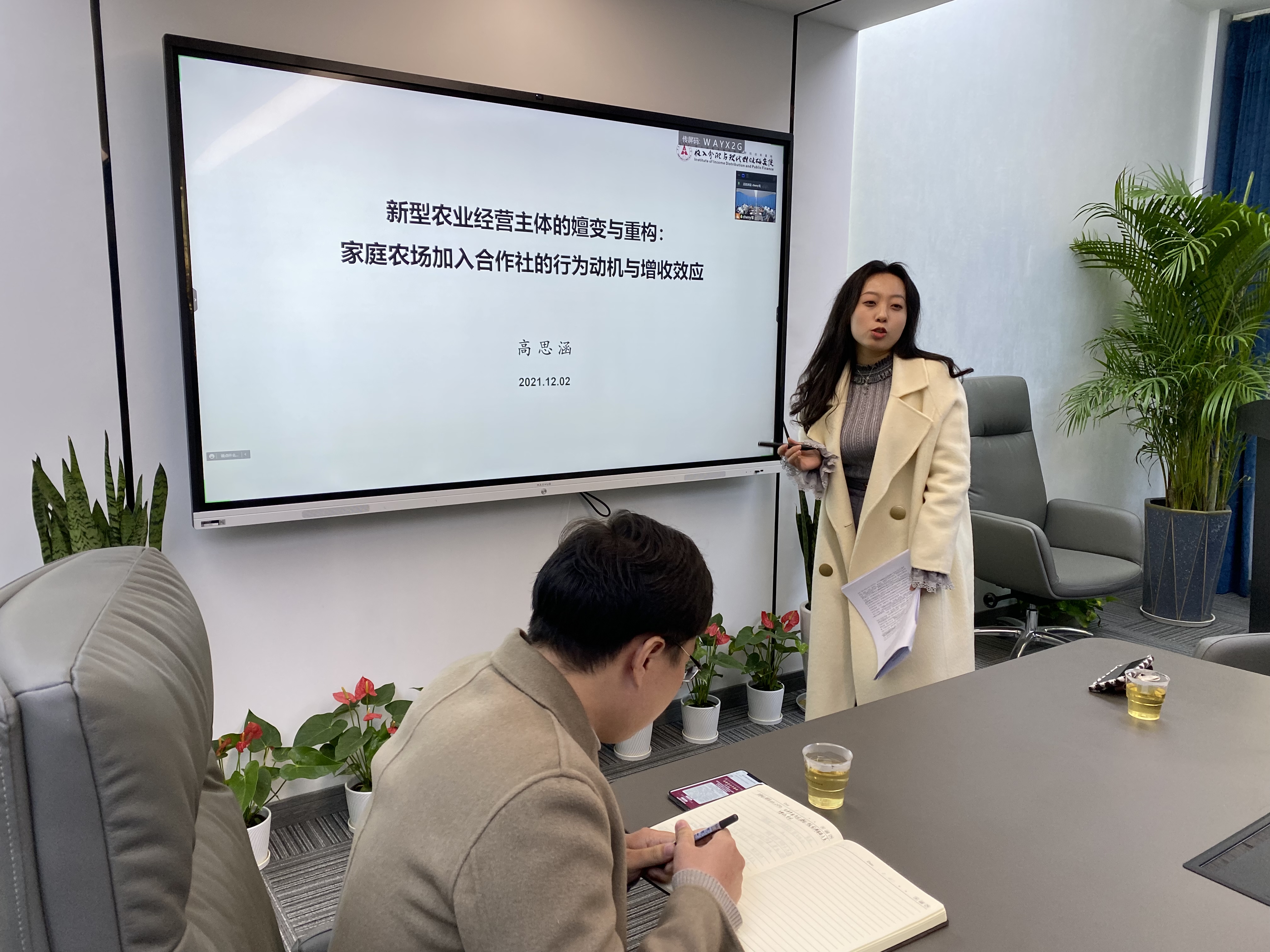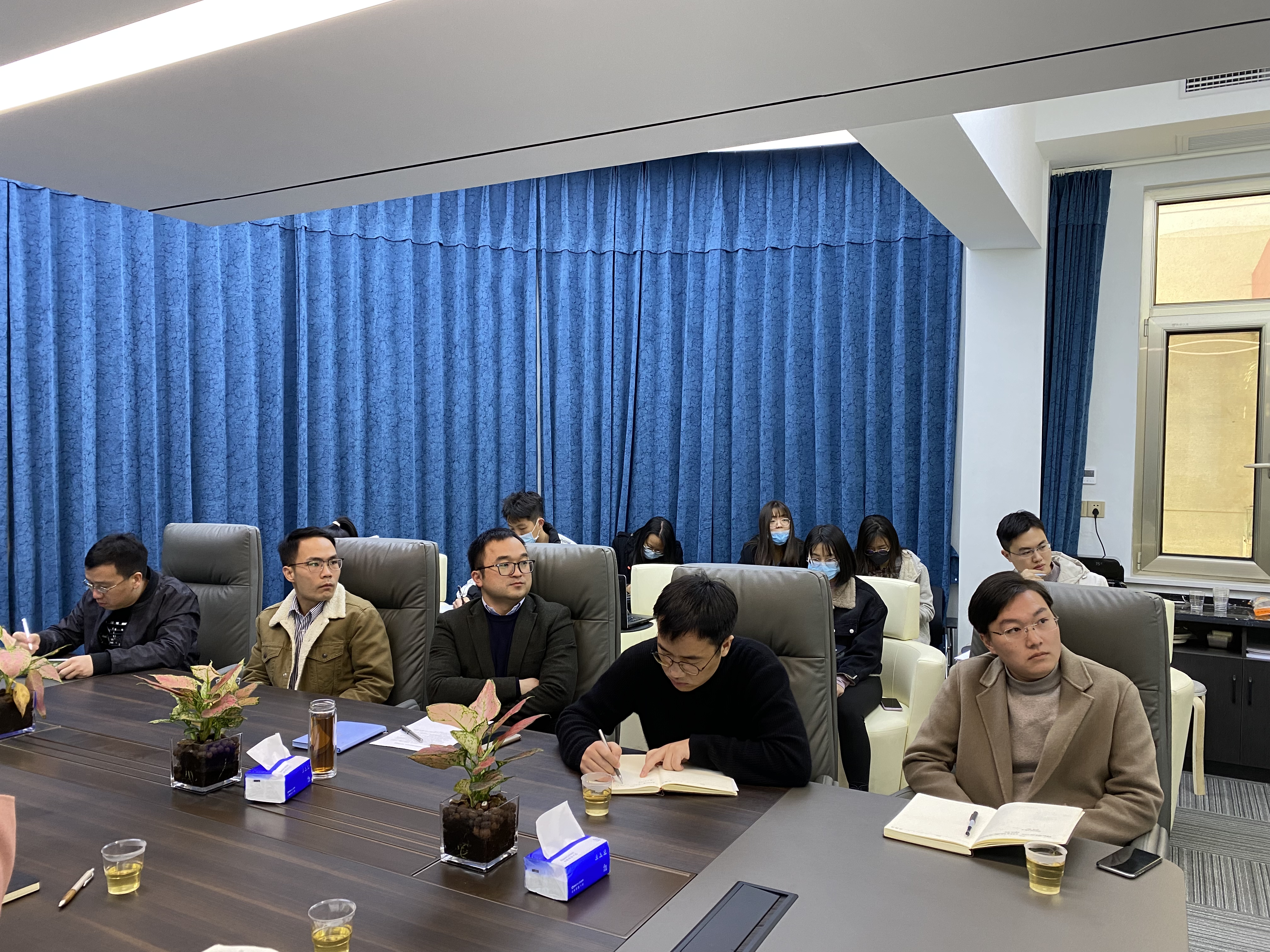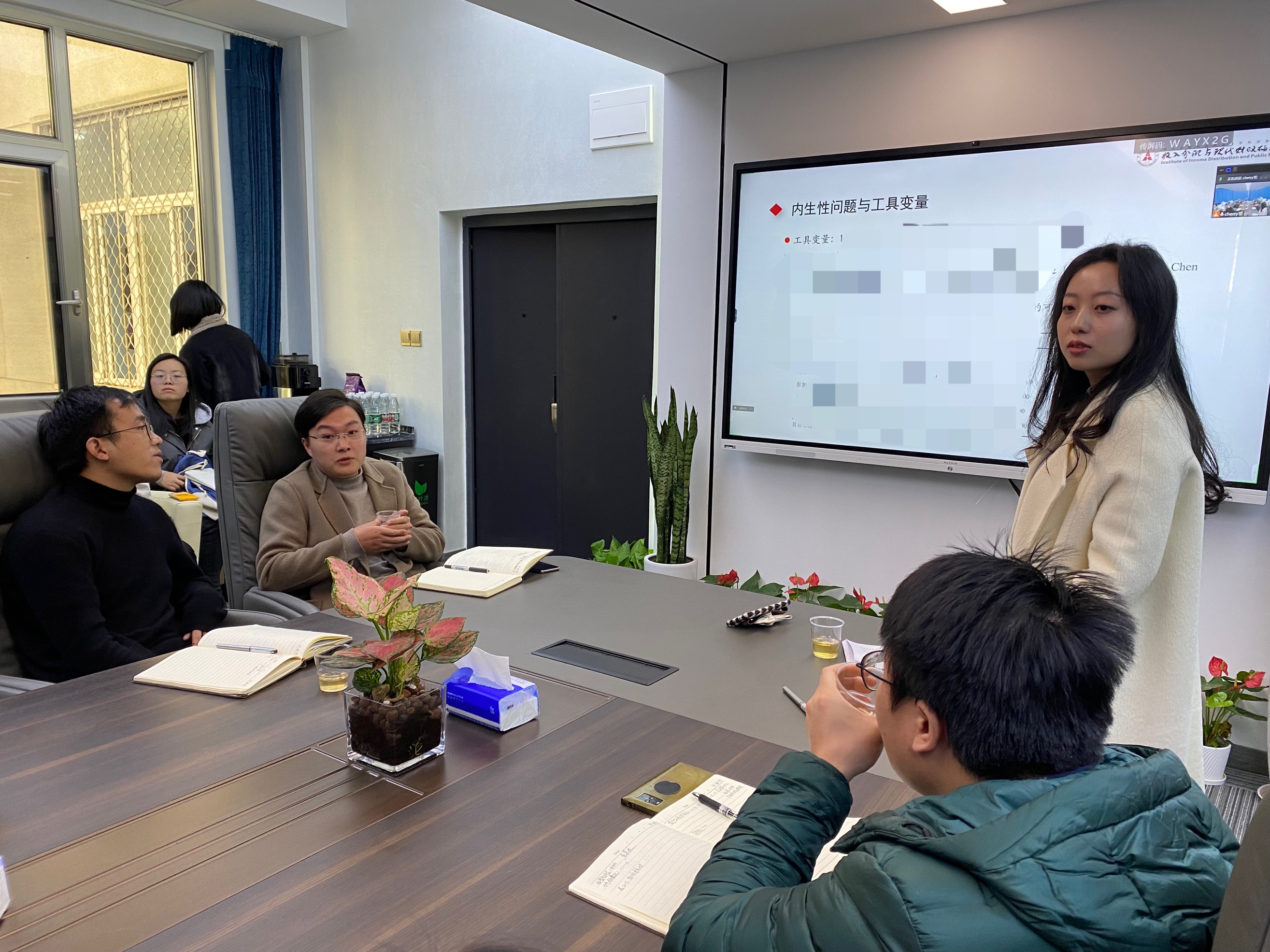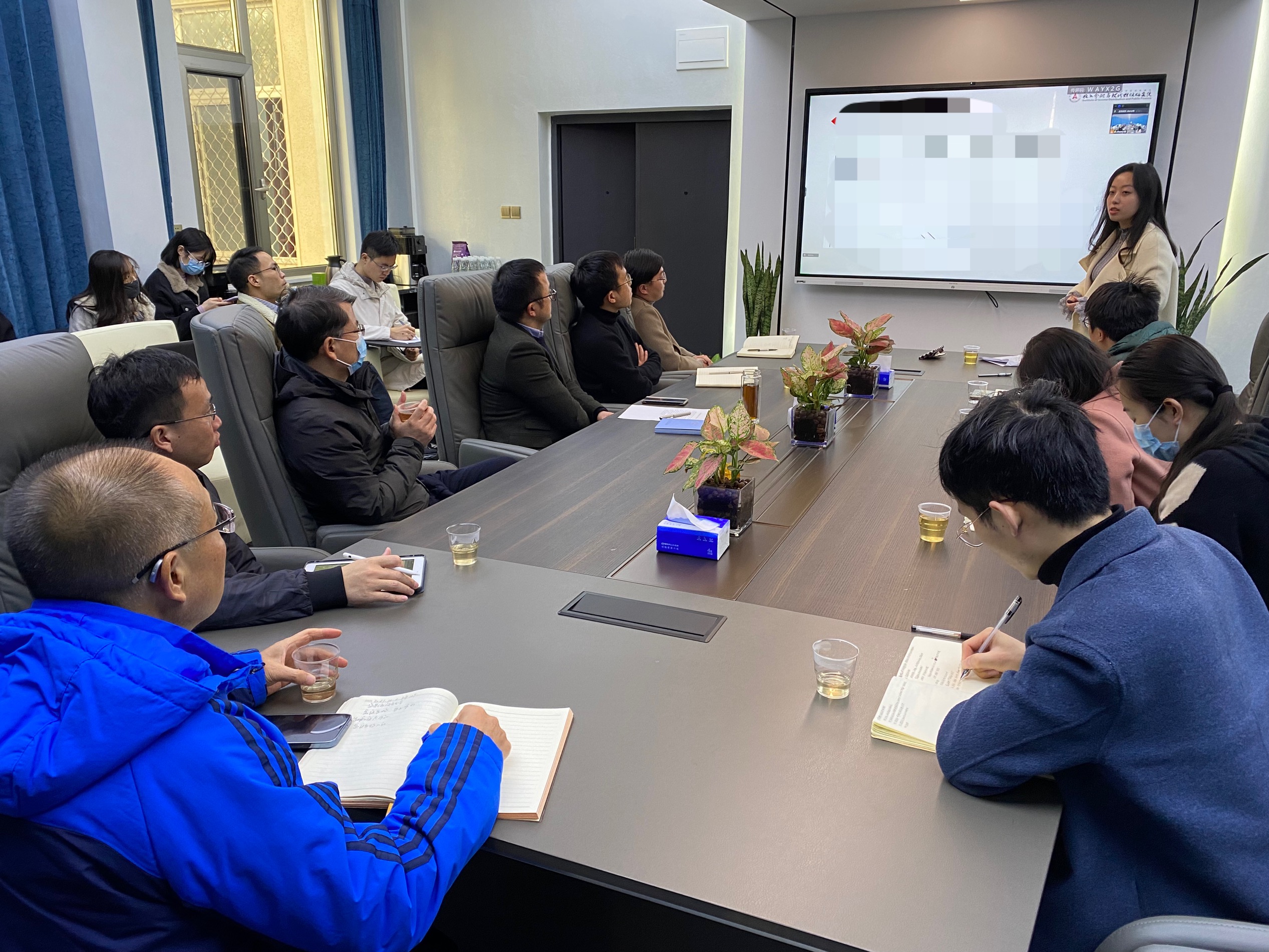On 2 December 2021, the 8th Xi Xian Academic Luncheon, co-organised by IIDPF and the School of Public Finance and Taxation, was successfully held in Conference Room 119, Wenqin Building. As the keynote speaker of the luncheon, Dr Gao Sihan, a researcher at IIDPF, gave a lecture entitled "Transmutation and Reconstruction of New Agricultural Operators: Behavioural Motivations and Income Increasing Effects of Family Farms Joining Cooperatives". The forum was chaired by researcher Dr Zou Wei. The academic luncheon was attended by more than 40 students and faculty members, including Professor Zhang Kezhong, Dean of the School of Public Finance and Taxation and Deputy Director of the IIDPF, Professor Sun Qunli, Deputy Director, Professor Lu Yuanping, Executive Deputy Director, Dr. Zhou Qiang from the School of Economics, Dr. Yan Weibo from the School of Public Finance and Taxation, and all researchers.

  To achieve common prosperity in urban and rural areas, the prerequisite is to expand the "quantity" of farmers' income, and the organisation and socialisation of agricultural production is currently the weakest link in agricultural production. Compared to ordinary farmers, the development of family farms displays a two-wheeled model of professional economies of scale and diversified economies of scope. Joining a co-operative, as the most effective way for current agricultural operators to embed themselves in the market competition, reduces the high transaction costs of the operators on the one hand; on the other hand, it corrects the unequal balance of power between the market and the operators. Therefore, when family farms with their own advantages are combined with cooperatives to form a synergistic mechanism of "family farms + cooperatives" to increase income, what kind of income effect will it bring?

  Against this backdrop, Dr Gao Sihan uses family farms as the subject of his study and applies the theory of asset specificity to analyse the behavioural motivations of family farms to join the society. Dr. Gao also used data from three rounds of surveys on family farms from 2017 to 2019 published by the Wuhan University Economic Development Research Centre to empirically test whether joining a cooperative has a certain boosting effect on the income of large-scale business operators. The empirical results show that family farms with a higher degree of asset specialisation and diversification have a stronger incentive to join, that joining a co-operative can further organise the family farm externally, and that family farms with a higher degree of internal diversification have a more pronounced income-raising effect of joining a co-operative, boosting their income by 15.94%. Further mechanistic analysis revealed that the income generating effects of supply and marketing and credit cooperatives were more significant for family farms than for production cooperatives. Heterogeneity tests and unconditional quantile treatment effects suggest that there may be 'elite capture' of the treatment effect of joining a cooperative among members of different positions and income levels.

  Dr. Gao Sihan's wonderful sharing captivated the students and faculty in the audience. The luncheon had a lively atmosphere, with all hands raised frequently and active interaction. Issues such as the background of the study, the cut of the research angle, the mode of operation of the cooperative, and endogeneity were discussed in depth. Dr Gao Sihan's research provides new ideas for the reconfiguration of new agricultural business entities, enriches the application of asset specificity theory and sheds new light on the sustainability of farmers' income and the acceleration of the goal of common prosperity.

